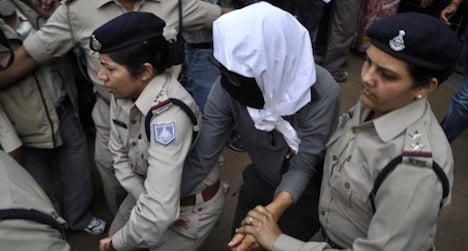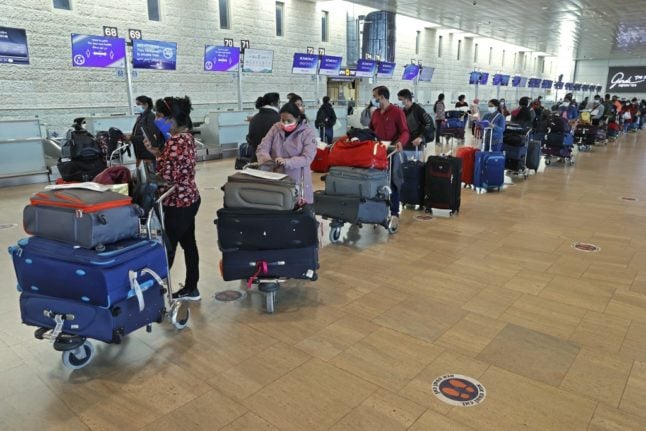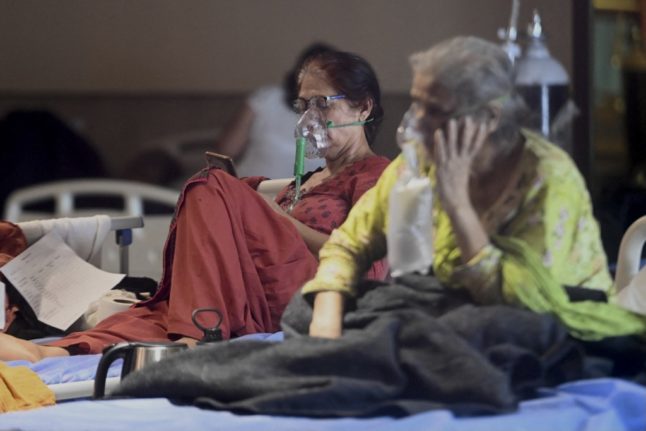"All the accused have been convicted and we are satisfied with the judgement," said the public prosecutor in the case, Rajendra Tiwari, after the court ruling in central India, the semi-official Press Trust of India and other local media reported.
The rape of the Swiss woman came three months after the fatal gang-rape of a 23-year-old physiotherapy student on a bus in Delhi in December, which brought simmering anger about the treatment of women in India to the surface.
India's legal system has faced intense scrutiny over its efforts to curb violence against women in the world's largest democracy following the Delhi gang rape in which the victim died of horrific internal injuries.
The six sentenced to life on Saturday were detained soon after the attack on the Swiss woman in mid-March in a remote, forested area of Datia district in central Madhya Pradesh state where the victim was camping with her husband.
Her 30-year-old husband was tied up as the woman was assaulted and the pair were also robbed, according to police.
The Swiss couple were reported to be on an adventure tourism trip in India and were cycling through the northern part of the country.
Only four of the six men were charged with gang-rape because testimony from the victim said two of them were "only present at the crime scene", according to M.L. Dhody, a Datia police officer.
The other two accused were charged with assault and robbery but still received life-sentences at the court in Datia district.
Five of the men were farmers in their twenties while the sixth was 19 at the time of the attack, police said.
Weeks of massive demonstrations over the Delhi rape prompted India's parliament to toughen sex offence laws including doubling the minimum prison sentence for gang-rape to 20 years.
Part of the legal shake-up involved the establishment of fast-track courts to try accused rapists in India's clogged legal system where cases can often drag on for years.
The fast-track trial of four adult suspects in the Delhi rape – another died while in jail from a suspected suicide in March – is underway in the Indian capital.
A fifth accused is being tried as a juvenile.
One woman is raped every 20 minutes, the National Crime Records Bureau says. But the crime is vastly under-reported because of the social stigma associated with such attacks.
The publicity generated by the Delhi rape and the issue of violence against women in India led to a 35 percent fall in female visitors to India in the first three months of the year, the Associated Chambers of Commerce and Industry of India said recently.
Indian women are by far the main targets of rape. Earlier this month police arrested eight suspects over the gang-rape of four schoolgirls abducted from their convent boarding house in the country's east.
But there have been also been a string of cases involving foreign women over the past months.
Indian police said in June they were investigating the gang-rape of a US tourist by a group of truckers while an Irish charity worker was reported to have been raped in the eastern city of Kolkata that same month.
Indian officials say there is no need for alarm, pointing out that foreigners are victims of crime the world over and the vast majority of visitors experience no safety problems.
But travel advice from a host of countries stresses the need for visitors to take care in India.




 Please whitelist us to continue reading.
Please whitelist us to continue reading.
Member comments